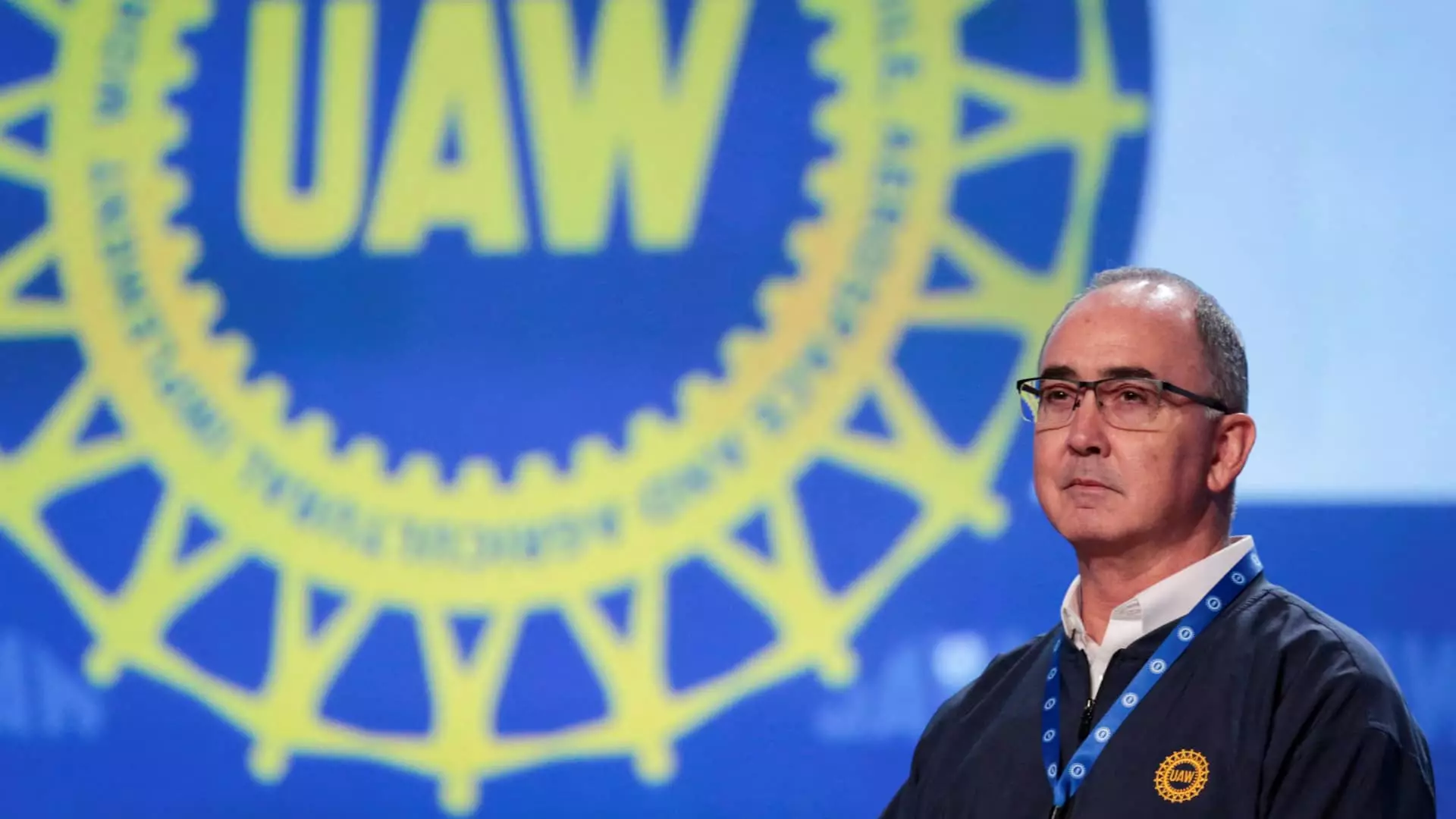United Auto Workers President Shawn Fain made scathing remarks about Stellantis CEO Carlos Tavares in a video, painting a grim picture of the company’s current state. Fain accused Tavares of engaging in price gouging practices, neglecting contractual obligations, and overseeing declining sales and profits. These accusations shed light on a contentious relationship between the union and the automaker following turbulent collective bargaining talks. However, it is essential to critically examine the validity and implications of these accusations against Tavares and Stellantis.
Fain’s assertion that Stellantis is price gouging consumers to boost profits raises serious concerns about the company’s business ethics. By claiming that Stellantis has been selling fewer cars but making more profits, Fain implies that the company is exploiting customers by inflating prices. Such practices, if true, could not only harm consumers but also tarnish Stellantis’ reputation in the automotive industry. It is imperative for Stellantis to address these allegations transparently and take necessary corrective actions to regain trust and credibility.
Accusing Tavares of failing to uphold parts of the labor contract with the workers further intensifies the rift between the union and the company. Fain specifically points out Stellantis’ decision to halt the reopening of an assembly plant in Illinois, indicating possible breaches of contractual agreements. Such actions can erode employee morale, disrupt production schedules, and lead to legal repercussions. Stellantis must clarify its stance on these allegations and demonstrate a commitment to honoring its contractual obligations to maintain a harmonious work environment.
Tavares’ cost-cutting initiatives and restructuring efforts since the merger between Fiat Chrysler and PSA Groupe have faced significant backlash. The reduction in headcount by 15.5%, including layoffs in North America, has drawn criticism for its severity and impact on employees. Additionally, Tavares’ comments about quality issues at the Ram 1500 truck plant and the need for improvement reflect operational challenges within the company. Addressing these issues promptly is crucial to enhancing production efficiency, product quality, and customer satisfaction.
As Tavares pursues ambitious revenue targets and profitability goals through his “Dare Forward 2030” plan, he must navigate the delicate balance between cost optimization and sustainable growth. Engaging in constructive dialogue with the union, addressing concerns raised by Fain, and fostering a culture of transparency and accountability are essential steps for Stellantis to overcome its current challenges. By prioritizing ethical business practices, respectful labor relations, and operational excellence, Stellantis can regain its competitive edge in the automotive market and secure long-term success.
The accusations against Stellantis CEO Carlos Tavares underscore the complexities and tensions inherent in the automotive industry. While criticisms and challenges are inevitable, how companies like Stellantis respond to them defines their resilience and adaptability. By critically evaluating the accusations, implementing corrective measures, and embracing a forward-thinking approach, Stellantis can navigate through turbulent times and emerge stronger on the other side.


Leave a Reply